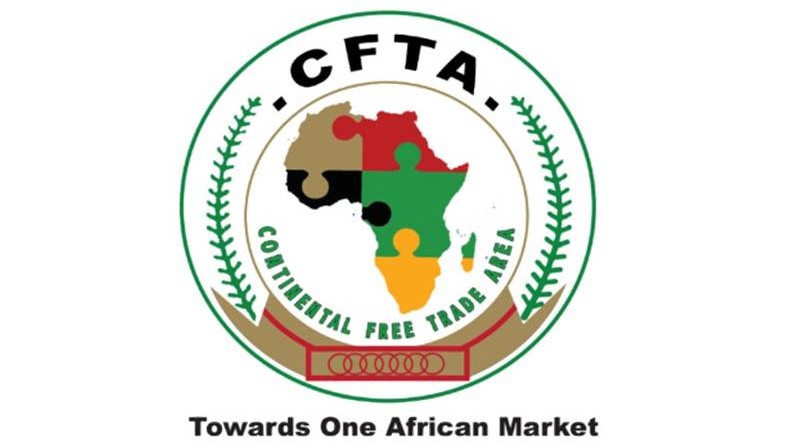Nigerian businesses set up Trade in Services Coalition to boost AfCFTA Protocols
A coalition named the Trade in Services Coalition has been formed by thirty-six Nigerian business associations, with the assistance of the Center for International Private Enterprise (CIPE), to facilitate the execution of the Trade in Services Protocol within the framework of the African Continental Free Trade Area (AfCFTA Protocols).
According to a statement from the center, the coalition’s objective is to unite stakeholders in Nigeria’s services trade sector. It will be governed by a five-member coordination committee responsible for directing the coalition’s initiatives across various sectors, including business, communication, finance, tourism, travel, and transport.
Goal of the Trade in Services Coalition on AfCFTA
One of the goals of this alliance is to assist Nigerian businesses in leveraging the opportunities presented by the AfCFTA Protocols. This presents substantial prospects for trade and creativity in products and services throughout Africa and worldwide. In order to accomplish these goals, the coalition will concentrate on the necessity of incorporating Nigeria into the five key sectors of the AfCFTA Trade in Services. This will involve empowering diverse stakeholders within these sectors in Nigeria to assume leadership in the future of trade in services through advocacy training and capacity development initiatives. remarked Lars Benson, regional director of CIPE Africa.
He mentioned that the alliance aims to aid in the execution of the AfCFTA Trade in Services Protocol in Nigeria, work together and campaign on trade-related matters, and cultivate a cohesive stance for influential transformation.
The Trade in Services Coalition aims to facilitate Nigeria’s integration into AfCFTA Protocols’ five key service sectors by empowering stakeholders through advocacy, training, and capacity building. Additionally, it intends to cooperate with national professional organizations and regulatory bodies to enhance efficiency in service delivery and eliminate duplication of efforts.
About AfCFTA Protocols
The African Continental Free Trade Area (AfCFTA Protocols) represents the largest free trade zone globally, encompassing the 55 member states of the African Union (AU) along with eight Regional Economic Communities (RECs). The primary objective of the AfCFTA Protocols is to establish a unified continental market that serves a population of approximately 1.3 billion individuals and boasts a collective GDP nearing US$ 3.4 trillion. This initiative is a cornerstone of Agenda 2063: The Africa We Want, which outlines the African Union’s strategic vision for the continent’s transformation into a significant global player.
In alignment with its objectives, the AfCFTA Protocols aims to dismantle trade barriers and enhance intra-African trade. Specifically, it seeks to promote trade in value-added production across all sectors of the African economy. The AfCFTA Protocols is expected to play a crucial role in developing regional value chains within Africa, thereby facilitating investment and job creation. The effective execution of the AfCFTA Protocols holds the promise of driving industrialization, generating employment opportunities, and attracting investments, ultimately improving Africa’s competitiveness in the medium to long term.
Nigeria in AfCFTA Protocols
Nigeria is one of the countries that has ratified the AfCFTA Protocols treaty. The country has gone so far as setting up a National Action committee on the African Continental free Trade Area (AfCFTA Protocols) and appointed a Secretary general for the committee in the person of Mr. Olusegun Awolowo
The National Action Committee on AfCFTA was established in December 2019 by His Excellency, President Muhammadu Buhari, to oversee the coordination of government ministries, departments, agencies, and private sector stakeholders in implementing initiatives to prepare Nigerian businesses for the AfCFTA.
The committee is led by the Honorable Minister of Industry, Trade, and Investment, with the Honorable Minister of Budget and National Planning serving as the Alternate Chairperson. Its Steering Committee consists of Cabinet Ministers, Agency Heads, Industry Association Executives, and distinguished individuals who serve as advocates for AfCFTA in their respective sectors. The Secretariat of the Committee is headed by the Special Senior Assistant to the President on Public Sectors.
The Mandate of the National Action Committee on AfCFTA Protocols
The National Action Committee is tasked with formulating Nigeria’s strategy and mobilizing all relevant public and private sector entities to achieve its mission and strategic goals for the AfCFTA.
At the national level, the Committee will facilitate the development and implementation of preparedness initiatives to enhance production and service capabilities, boost competitiveness, coordinate adjustment programs, and update policies, regulations, and laws as necessary.
On a regional and continental scale, the National Action Committee will support the alignment of trade and industrial policies, foster the joint development of value chains between Nigeria, ECOWAS, and other African countries, and assist relevant agencies in negotiating agreements to operationalize the AfCFTA.
The Secretariat of the National Action Committee provides program management, technical support, and research capabilities to empower the Committee in aiding government entities and the business community in leveraging the opportunities presented by the AfCFTA.




